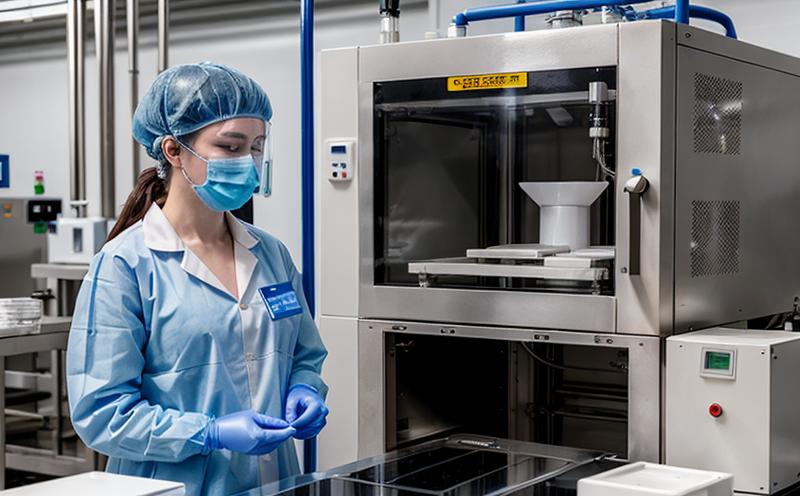GMP Compressed Air Quality Testing
Good Manufacturing Practice (GMP) is a set of guidelines designed to ensure that pharmaceutical products are consistently produced and controlled in terms of their quality, safety, and efficacy. A critical component of GMP compliance lies in the integrity and cleanliness of compressed air used within manufacturing processes. This service focuses specifically on testing the quality of compressed air for GMP compliance.
The importance of compressed air quality cannot be overstated. Any contamination introduced into production processes can lead to product defects, recalls, or even safety issues. In pharmaceutical manufacturing, where sterility and purity are paramount, even trace amounts of contaminants can have serious consequences. This service ensures that the compressed air used in your facility meets stringent GMP standards.
Our testing methodology involves a multi-step process aimed at identifying potential contaminants such as particulate matter, water vapor, oil mist, and microbial content. We use state-of-the-art equipment to analyze these parameters, ensuring precision and reliability of results. The tests are conducted in accordance with international standards including ISO 14683:2019 for air cleanliness levels.
Compressed air quality testing is crucial not only during the initial installation but also as part of routine maintenance checks to ensure ongoing compliance with GMP regulations. Regular monitoring helps identify any issues early on, preventing costly downtime and potential legal ramifications.
The results of our tests are comprehensive and detailed, providing you with a clear understanding of your compressed air quality status. These reports can be used for internal audits or to support external inspections by regulatory bodies like the FDA. By leveraging this service, you ensure that your facility remains compliant with GMP requirements, thereby protecting both product integrity and patient safety.
| Parameter | Description |
|---|---|
| Particulate Matter | Dust and other solid particles that could contaminate the product. |
| Water Vapor Content | The amount of moisture present in the air, which can affect product stability. |
| Oil Mist Levels | Traces of oil that could be introduced into the process through compressor systems. |
| Bacterial and Fungal Count | The presence of microorganisms that can compromise product sterility. |
Why It Matters
GMP compliance is essential for ensuring the safety and efficacy of pharmaceutical products. Contaminated compressed air can introduce impurities into production processes, leading to defects in final products or even potential health risks if these contaminants reach the patient.
- Reduces the risk of product contamination
- Ensures consistent quality across batches
- Minimizes the likelihood of recalls and legal issues
- Promotes a safer work environment for employees involved in production processes
By adhering to GMP standards, manufacturers demonstrate their commitment to producing high-quality products that meet regulatory requirements. This not only enhances consumer trust but also helps maintain the company’s reputation and market position.
Industry Applications
This service is particularly relevant for pharmaceutical manufacturing facilities where GMP compliance is mandatory. It applies to various stages of production including:
| Stage | Description |
|---|---|
| Raw Material Handling | Ensuring that the air used in moving raw materials is free from contaminants. |
| Packaging and Labeling | Protecting packaging integrity by maintaining clean air during sealing processes. |
| Tableting and Filling Operations | Avoiding dust and other particles from affecting the final product quality. |
The service also supports R&D departments in optimizing production processes by ensuring that any changes do not introduce new sources of contamination into the manufacturing environment.





